- Home
- Roy J. Snell
On the Yukon Trail Page 2
On the Yukon Trail Read online
Page 2
CHAPTER II ON ARCTIC FEATHERS
A tardy dawn had scarcely come creeping over the surface of the glacierwhen they broke camp. Having breakfasted heartily on sourdough flapjacks,warmed-over baked beans and coffee, they were ready for anything.
"We'll sleep in a better bed to-night," remarked Jennings as he rolled upthe canvas floor to their tent and threw it on his sled.
"Couldn't be warmer," said Curlie.
"No, but softer."
"Cheer-o," shouted Joe, "that sounds good to me."
"Now," said Jennings, producing from the depths of his pack two smalldouble pulleys and a coil of rope, "the next thing is to get over theridges. Have to use block and tackle."
"That sounds all right," smiled Curlie, "but how you going to hitch ablock to a smooth surface of ice?"
"Leave it to me," laughed the miner. "Between four and five thousand ofus went over this glacier in '98. Had mighty few dogs and pulled 1400pounds of outfit apiece too. That was tough sledding. Didn't make athousand feet progress in a day sometimes. Three of our crowd never didget over; froze to death right here on the glacier. But I tell you," heexclaimed suddenly, "those were the days! Those were the men! It's alwaysthe bravest and the best that go first in a rush like that. The cheap,the idle, the crooked ones come later to live off the gains of those whodared much in the beginning." Having ended this little oration, he gotdown to business.
"You boys string the rope through those blocks. When you get that done,throw me up one of the blocks."
"Here," he exclaimed, "better strap these on your shoes. They'll help youa lot."
The things he threw at their feet were made of steel and leather. Whenthey were strapped upon the soles of one's shoes they transformed theirplain, heavy felt-lined shoes into something resembling baseball shoes.
"Great stuff!" exclaimed Joe, driving the sharp steel barbs beneath theballs of his feet into the ice. "Couldn't slip in these if you tried to."
A moment later they tossed one of the blocks into which the rope had beenthreaded up to Jennings on the icy ridge above.
"All right," he sang out a moment later. "Hitch the other block to thesled and heave away."
Much to the surprise of the boys, when they pulled at the rope, theblock, out of sight on the ridge above, held firm, and the sled climbedslowly up the almost perpendicular bank. A moment later, they sawJennings drag the sled to a safe position on the icy bench.
"How does he do it?" whispered Joe.
"Got me," Curlie whispered back. "He surely couldn't hold it."
"Say not! Took both of us to pull it up and we had the advantage of theblocks."
"All right," came from above as a block glided back to them, "let's havethe next one."
When the three sleds were upon the bench and the dogs had been induced tofollow, the boys climbed up, eager to discover the miner's secret.
"Oh!" exclaimed Joe. "Only a stake in the ice. Who could have left it?"
He was staring at a stout stake which stuck ten inches above the surfaceof the ice.
"Nobody. I put it there," Jennings smiled. Then, seeing their look ofincredulity, he went on, "You'll remember I left the cabin last nightwith a package under my arm. Also, you will remember that I melted abucket of snow water while supper was cooking. In the bundle there wasnothing but stout stakes; a dozen of them. You'll find them up theglacier, all frozen in. All I had to do was to chip a hole in the ice,then thrust in a stake. After that I filled the hole full of snow, thenpoured water over it. The snow and water froze together almost instantlyand here we have our stakes. We'll have lunch on the other side of theridge and to-night we will sleep in a spruce forest. We shall then havegained a full two days on our journey. With the trail in its presentcondition we could not have made the journey over the roundabout valleyin less than four days and even then we would have worn down our dogs."
When, a few hours later, all the miner's prophecies had been fulfilledand the boys were preparing the second night's camp, they wereenthusiastic in their praise of their new-found friend.
"To-night," smiled the miner, "we will sleep on a bed of Arcticfeathers."
"Arctic feathers!" exclaimed Curlie in surprise. "What are they?"
"Wait and see."
Jennings studied the shapely spruce trees which towered about them onevery side. Then he allowed his eyes to wander over the surface of theearth's two-foot-thick mantle of snow.
"That's a good place," he pointed at a smooth spot which was surroundedby trees. "First we'll tramp down the snow. No need of shoveling itaway."
At once they set to work packing down a square of snow.
"Might as well start right," said the miner. "We're going into a land oflong nights. Fairly long now but they'll get much longer. Get to betwenty hours. If we start making camp right we'll have all the comfortsof home."
"There," he said at last, "guess that'll do. Now we'll divide up the workand make the jobs regular; each fellow do the same thing every night.System, that's what you need on the trail, as well as in business."
Turning to Joe he said: "There's a likely looking tree right there. Cutit down."
"It won't burn; it's green."
"Who said it would?"
Joe grinned as he seized an axe to drive it into the thick bark of thetree.
"There's a dead tree for you, Curlie," said the miner. "Get it down andcut it into wood for the Yukon stove."
Turning to the camp kit, he was soon at work straightening out the tent,which had collected dampness from the previous night and was frozen stiffin spots.
He spread it over their tent-site and set it up as best he could. Then,crawling inside, he set up the sheet-iron stove and started a fire. Asthe tent, warmed by the fire, began to soften, he gradually drew it intoits accustomed shape.
In the meantime each boy had felled his tree and had trimmed it up.
"Now, Joe," said the veteran camper, "cut your tree into lengths to goacross each side of our tent and chop the first six inches of each endhalf off as if you were building a log house."
When this had been accomplished, he assisted Joe in placing the poles ina square about the tent. He next drew the lower edges of the tent outover the logs and packed snow over them to the depth of several inches.After that he spread a square of canvas as a floor to the tent.
"There," he sighed at last; "won't any air get into our tent to-night.Next thing is a lot of spruce boughs. Cut 'em right off and drag 'eminside."
When the tent was packed half full of boughs, he took out a large claspknife and began to clip off the small twigs on the branches. The boysfollowed his example. In a few moments the shorn branches were alloutside the tent and the canvas floor was buried ten inches deep withspruce needles and fine twigs.
"Now," said the miner, "the two of you hold up the stove while I spread acanvas over the whole of it and our camp is made."
"Just like an old-fashioned feather bed!" exclaimed Joe, as he bounceddown upon the springy bed of twigs.
"That's it," smiled the miner. "Those are Arctic feathers. If we taketime to make a camp like this every night, we'll get a lot of comfort outof it and be all the better fitted for the trail. I'll go out and set upa shelter for the dogs while you boys get supper, then we'll be throughfor the night."

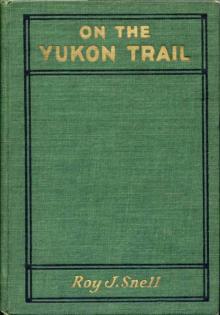 On the Yukon Trail
On the Yukon Trail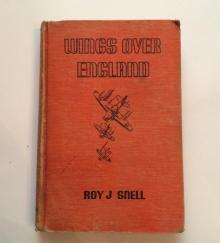 Wings over England
Wings over England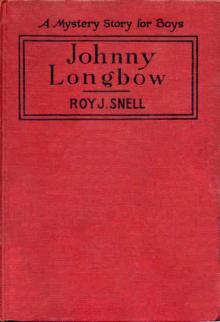 Johnny Longbow
Johnny Longbow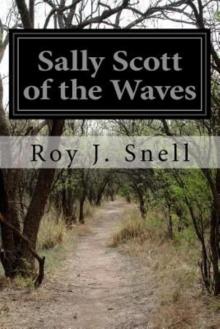 Sally Scott of the WAVES
Sally Scott of the WAVES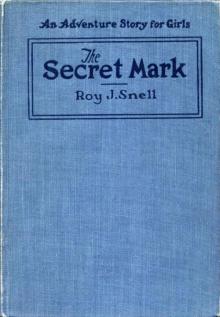 The Secret Mark
The Secret Mark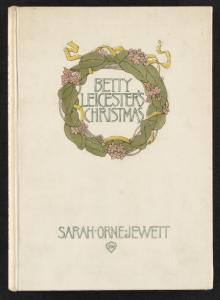 Betty Leicester's Christmas
Betty Leicester's Christmas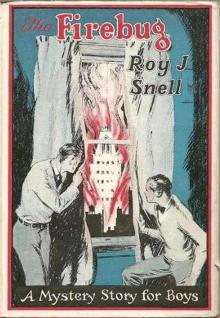 The Firebug
The Firebug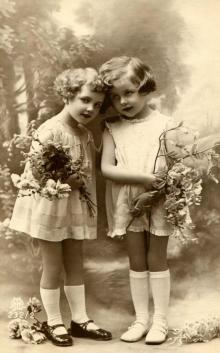 Minnie Brown; or, The Gentle Girl
Minnie Brown; or, The Gentle Girl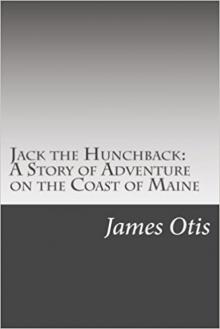 Jack the Hunchback: A Story of Adventure on the Coast of Maine
Jack the Hunchback: A Story of Adventure on the Coast of Maine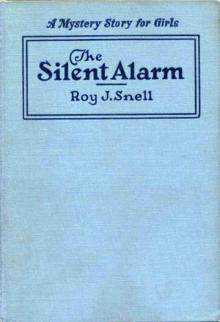 The Silent Alarm
The Silent Alarm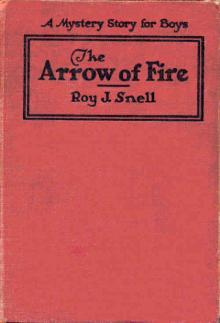 The Arrow of Fire
The Arrow of Fire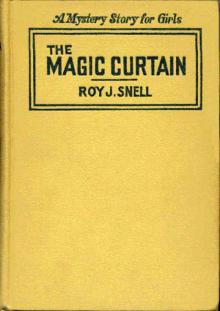 The Magic Curtain
The Magic Curtain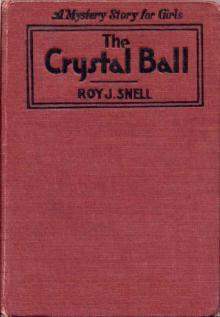 The Crystal Ball
The Crystal Ball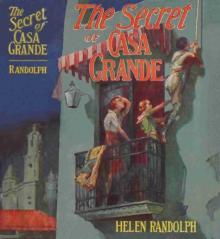 The Secret of Casa Grande
The Secret of Casa Grande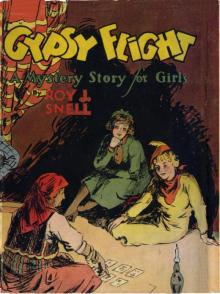 Gypsy Flight
Gypsy Flight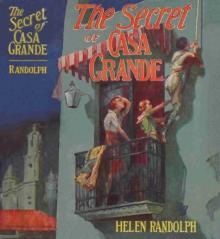 The Mystery of Carlitos
The Mystery of Carlitos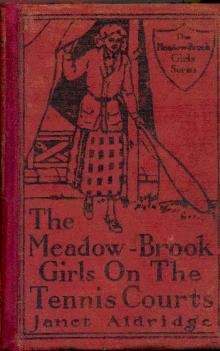 The Meadow-Brook Girls on the Tennis Courts; Or, Winning Out in the Big Tournament
The Meadow-Brook Girls on the Tennis Courts; Or, Winning Out in the Big Tournament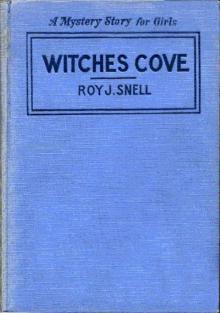 Witches Cove
Witches Cove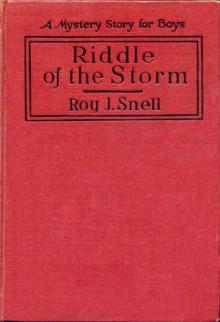 Riddle of the Storm
Riddle of the Storm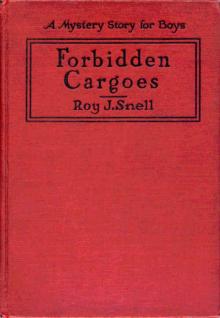 Forbidden Cargoes
Forbidden Cargoes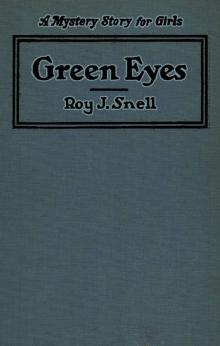 Green Eyes
Green Eyes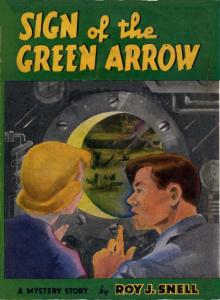 Sign of the Green Arrow
Sign of the Green Arrow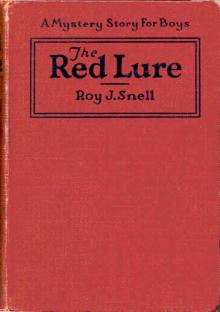 The Red Lure
The Red Lure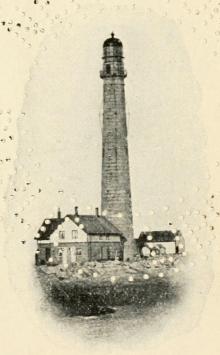 The Light Keepers: A Story of the United States Light-house Service
The Light Keepers: A Story of the United States Light-house Service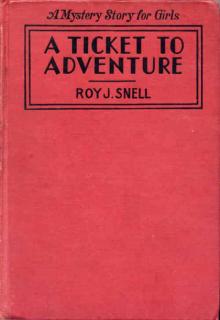 A Ticket to Adventure
A Ticket to Adventure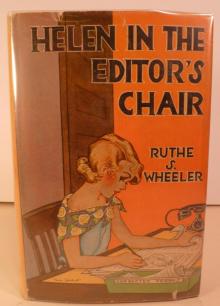 Helen in the Editor's Chair
Helen in the Editor's Chair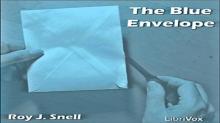 Blue Envelope
Blue Envelope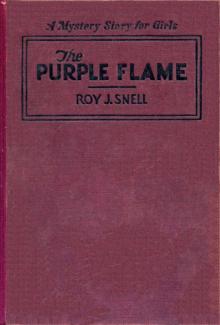 The Purple Flame
The Purple Flame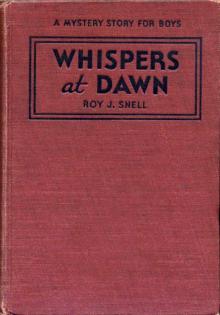 Whispers at Dawn; Or, The Eye
Whispers at Dawn; Or, The Eye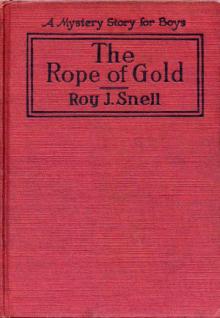 The Rope of Gold
The Rope of Gold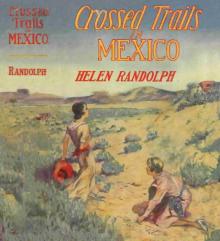 Crossed Trails in Mexico
Crossed Trails in Mexico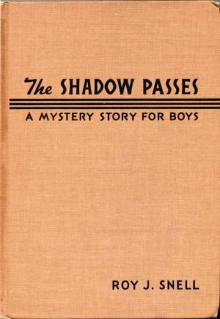 The Shadow Passes
The Shadow Passes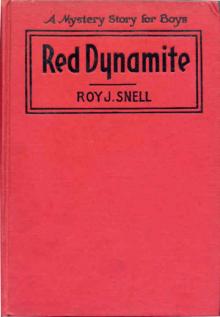 Red Dynamite
Red Dynamite Blue Grass Seminary Girls on the Water
Blue Grass Seminary Girls on the Water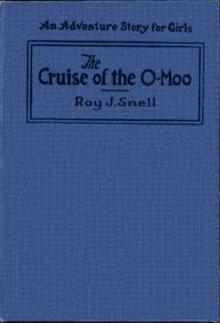 The Cruise of the O Moo
The Cruise of the O Moo